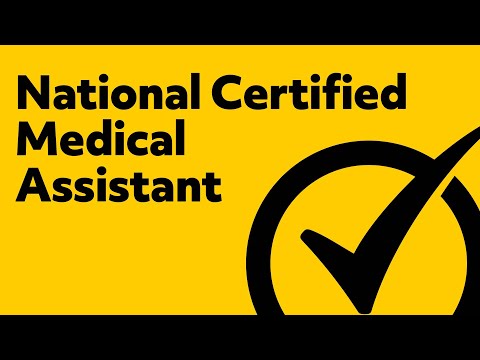The Duties of a Medical Assistant in a Medical Office
Contents
As a medical assistant you will play a vital role in keeping a medical office running smoothly. Your duties will include a variety of administrative and clinical tasks, from scheduling appointments and handling finances to taking patient histories and performing basic lab tests. By performing your duties with efficiency and compassion, you will help ensure that patients receive the best possible care.
Checkout this video:
Job description
A medical assistant in a medical office provides administrative and clinical support to the physician(s) and other health care providers working in that office. Medical assistants are part of the health care team and perform a variety of tasks to support the smooth running of the office, including:
-Answering telephone calls and scheduling appointments
-Greeting patients and collecting patient information
-Updating and filing patient medical records
-Preparing patients for examination
-Assisting the physician during examinations
-Performing routine laboratory tests
-Instructing patients on taking medications and other self-care tasks
-Arranging for hospital admissions and laboratory tests
-Completing insurance forms
Duties and responsibilities
Medical assistants are multi-skilled health professionals specifically trained to work in outpatient facilities such as medical offices and clinics. Their duties vary with the location, specialty, and size of the practice. With the physician’s supervision, they may take medical histories and record vital signs, explain treatment procedures to patients, prepare patients for examination, authorize prescription refills, draw blood, give injections, remove sutures, and change dressings. They also perform office duties such as answering telephones, greeting patients, updating and filing patients’ medical records scheduling appointments, handling correspondence, and billing.
Skills and qualifications
Medical assistants perform a variety of tasks in medical offices, including patient care, administrative duties, and clinical tasks. To be a successful medical assistant, you must be able to perform all of these tasks competently. In addition, you must be able to communicate effectively with patients, families, and other members of the healthcare team. Here are some specific skills and qualifications that will help you succeed in this role:
• Patient care: Medical assistants are responsible for a variety of patient care tasks, including taking vital signs, assisting with exams and procedures, and providing patient education. To perform these tasks effectively, you must be able to read and understand medical instructions, follow directions carefully, and maintain a calm and professional demeanor with patients.
• Administrative duties: Medical assistants also perform many important administrative tasks in medical offices. These duties include scheduling appointments, handling billing and insurance matters, and maintaining Medical records To be successful in this area, you must have excellent organizational skills and be able to pay close attention to detail.
• Clinical skills: In addition to patient care and administrative duties, medical assistants also provide direct clinical support to physicians and other members of the healthcare team. Clinical skills that are important for medical assistants include taking accurate medical histories, preparing patients for exams, administering injections, and performing basic laboratory tests. If you are interested in pursuing a career as a medical assistant, it is important to make sure that you have the necessary clinical skills.
To succeed as a medical assistant, you must have a combination of both clinical and administrative skills. With the right mix of skills and qualifications, you can thrive in this rewarding career!
Education and training
Medical assistants are an important part of the healthcare team. They are trained to perform both clinical and administrative duties in a medical office.
Medical assistants must have at least a high school diploma or equivalent, although many employers prefer candidates who have completed an accredited medical assistant training program. Most programs take about a year to complete and include both classroom and hands-on training.
After completing their education and training, medical assistants must pass a national certification exam to earn their credential. Some states also require medical assistants to be licensed.
Salary and benefits
A medical assistant in a medical office provides support to the office staff and physicians. He or she may be responsible for greeting patients, scheduling appointments, answering phones, handling medical records billing and coding insurance forms, and other office duties as outlined by the state in which the medical assistant practices. Pay for a medical assistant varies depending on experience, training, geographic location, and type of employer. Benefits are typically available to full-time employees and may include health insurance dental insurance, 401k plans, paid vacation days, and sick leave.
Job outlook
The duties of a medical assistant are wide-ranging and vary from office to office, but there are some common tasks that most medical assistants perform. These include taking and recording patients’ vital signs, updating and filing patients’ medical records, scheduling appointments and handling correspondence. Medical assistants also may give patients injections and perform basic laboratory tests. Some medical assistants take X-rays, remove sutures and change dressings.
Work environment
Medical assistants work in a variety of healthcare settings, but the majority are employed in outpatient facilities such as medical offices and clinics. Their work environment may be fast-paced and stressful, as they are often responsible for a variety of tasks.
Medical assistants must be able to handle multiple tasks at once and be able to adapt to changes in the work environment. They should have good organizational skills and be able to communicate effectively with patients and medical staff.
Career path
A medical assistant is a vital part of the healthcare team. They perform both clinical and administrative duties in doctors’ offices, clinics, hospitals, and other healthcare facilities.
Medical assistants usually report to a doctor or nurse and may be responsible for tasks such as taking medical histories and vital signs, scheduling appointments, drawing blood, sterilizing instruments, and billing patients. Some medical assistants also perform basic laboratory tests, give injections, or assist with minor surgery.
Medical assistants in the medical office
Medical assistants typically work in the front office of a medical practice, where they perform a variety of administrative duties. These may include answering phones, scheduling appointments, verifying insurance coverage, and handling patient billing.
In many medical offices, medical assistants also take on clinical tasks, such as taking medical histories and vital signs, preparing patients for examination, assisting with procedures, and giving injections. Some medical assistants also perform basic laboratory tests, such as urinalysis and blood sugar testing.
Medical assistants generally work closely with both doctors and patients and must be able to handle a variety of tasks simultaneously. They must have excellent communication skills, be detail-oriented, and be able to work well under pressure.
Duties of a medical assistant in a medical office
A medical assistant in a medical office has many duties. One of the most important duties is to keep the office organized and running smoothly. The medical assistant will often be responsible for scheduling appointments, taking messages, and handling other office tasks.
Another important duty of the medical assistant is to help the doctor with patient care. This may include taking patient histories, helping with physical examinations, and giving injections. The medical assistant may also be responsible for collecting lab specimens and performing basic laboratory tests.
In some cases, the medical assistant may also be responsible for billing and coding. This involves knowing how to code insurance forms and understanding the billing process. Medical assistants must be able to work well under pressure and handle a variety of tasks simultaneously.







